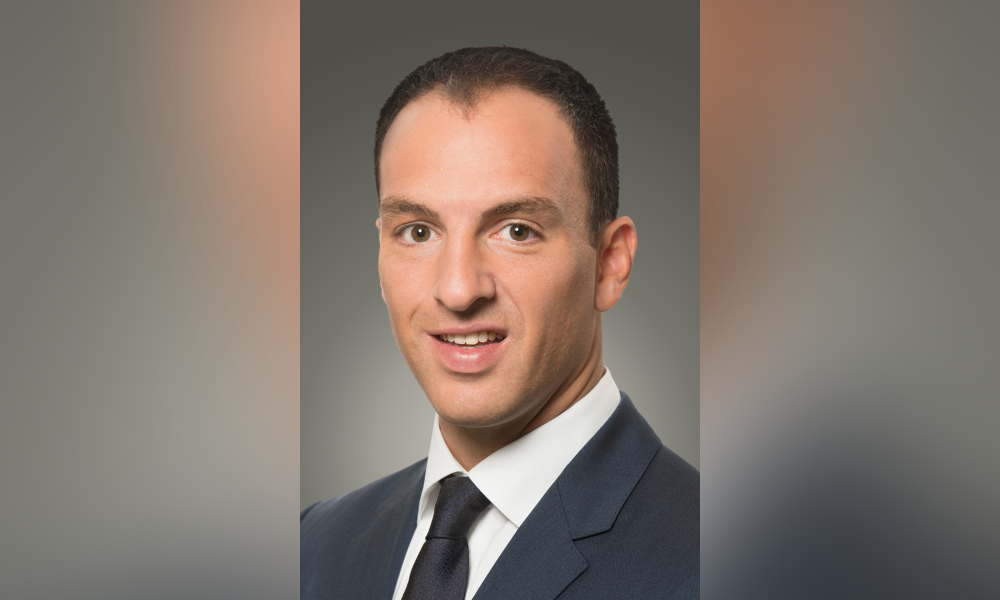Conrad Dabiet, senior portfolio manager, Manulife Investment Management, explains how he picks companies that not only endure but thrive through the tough times

This article was produced in partnership with Manulife Investment Management.
In many ways, the pandemic was the ultimate stress test for the Manulife U.S. Monthly High Income Fund’s stock selection process. As the country was plunged into lockdown, companies were faced with huge shifts in technology, consumer needs and business landscape. Who would survive and who would thrive?
Thanks to the team’s due diligence and its numerous meetings with companies, the fund, managed by Conrad Dabiet, Senior Portfolio Manager, Essential Equity Team, Manulife Investment Management, passed with flying colours. As fundamental stock-pickers, they had the foresight to identify companies that still paid dividends but had lower payout ratios and balance sheets, meaning they were not immediately disintermediated by the pandemic. Dabiet told WP the team was also wise enough to avoid a lot of traditional sectors where firms had to use debt to finance either dividends or simply staying afloat.
He said: “That all really came to a head during COVID, where a lot of companies showed some vulnerabilities and a lot of businesses accelerated digitalization trends. We navigated it and a lot of that was just the foresight and the homework we'd done to be well positioned. And then, we had the clarity and ability to take advantage of the opportunity set in the spring of 2020, which benefited the fund tremendously.”
The fund, launched at the back end of December 2013, was borne out of the success of the Manulife Monthly High Income Fund, which had proved successful at capital protection during challenging periods like 2001-2003 and 2008-2009. After the global financial crisis, investors were still looking for that protection but were also coming to the realization that bond yields were going to be much lower going forward. Given the market environment and investor needs in 2013, the timing was right to launch a fund with similar objectives and U.S. exposure.
With the world accelerating, Dabiet believes the fund has to have even more conviction in its core companies. By doing this, he feels it can not only help protect capital at a time when investors are hyper-attuned to inflation but also add income by taking advantage of trends that were supercharged by COVID-19. The fund’s fixed-income team, led by Howard Greene, forms a key part of this equation in today’s low-yield environment and are able to be opportunistic, as it did in 2020 when it moved into the convertible debt market.
Ultimately, Dabiet is always looking for companies “you can stick with” during economic slowdowns or periods of disruption. He explained: “A lot of our companies have very strong business characteristics – and they're led by management teams that we have confidence in, especially in very uncertain or tough periods.
“We find the companies that make up the core of our portfolio usually get better through tough periods; they either gain market share from their competitors who are weaker or they have the ability to use their balance sheets to acquire competitors and other businesses during times of turmoil or uncertainty. Plus, they're just better run from an everyday operational point of view.
“That goes back to working with companies. We meet, on average, almost one or two companies a day to understand how they approach managing their business. We’re then patient, evaluating them over time and let the performance that comes from their execution compound upon itself. That's been the key to our success.”
Investing in the U.S. is naturally different to doing so in Canada. Dabiet compares it to grand slam tennis in that the tactics that work on clay, for example, will not work on grass or hard courts. While in Canada the index is dominated by banking, telecom, and materials sectors, a lot of these are protected and not vulnerable to foreign competition, which creates stability. In the U.S., by contrast, it’s hyper competitive, with constant threats from new entrants.
He explained: “The benefit [to the U.S.] is you have a very broad opportunity in lots of different sub sectors, so you can truly build a very interesting, diversified portfolio, which is great for us. But again, the key is being able to focus on the opportunities that meet your criteria, and put those together in a portfolio that balances capital preservation and the ability to derive income.”
It’s all part of the process for a fund that has stood up to a rapidly changing world in the past two years. If anything, the pandemic has reinforced the need for portfolio managers to have iron-clad belief in the companies they own.
Dabiet said: “That's been the biggest lesson because the world is evolving so much faster. We don't spend too much time trying to guess exactly what the future is going to look like. We stay in the moment and just try to gravitate to the companies we think meet the criteria we're looking for and have confidence that they're going to get better in tough times. If you can do that, then you welcome the tough times, as difficult as they are, because your companies are going to come out ahead.”
The opinions expressed are those of the author(s) and are subject to change without notice. Our investment teams may hold different views and make different investment decisions. These opinions may not necessarily reflect the views of Manulife Investment Management or its affiliates. Manulife Funds and Manulife Corporate Classes are managed by Manulife Investment Management Limited. Manulife Investment Management is a trade name of Manulife Investment Management Limited. Commissions, trailing commissions, management fees and expenses all may be associated with mutual fund investments. Please read the fund facts as well as the prospectus before investing. Mutual funds are not guaranteed, their values change frequently and past performance may not be repeated.



